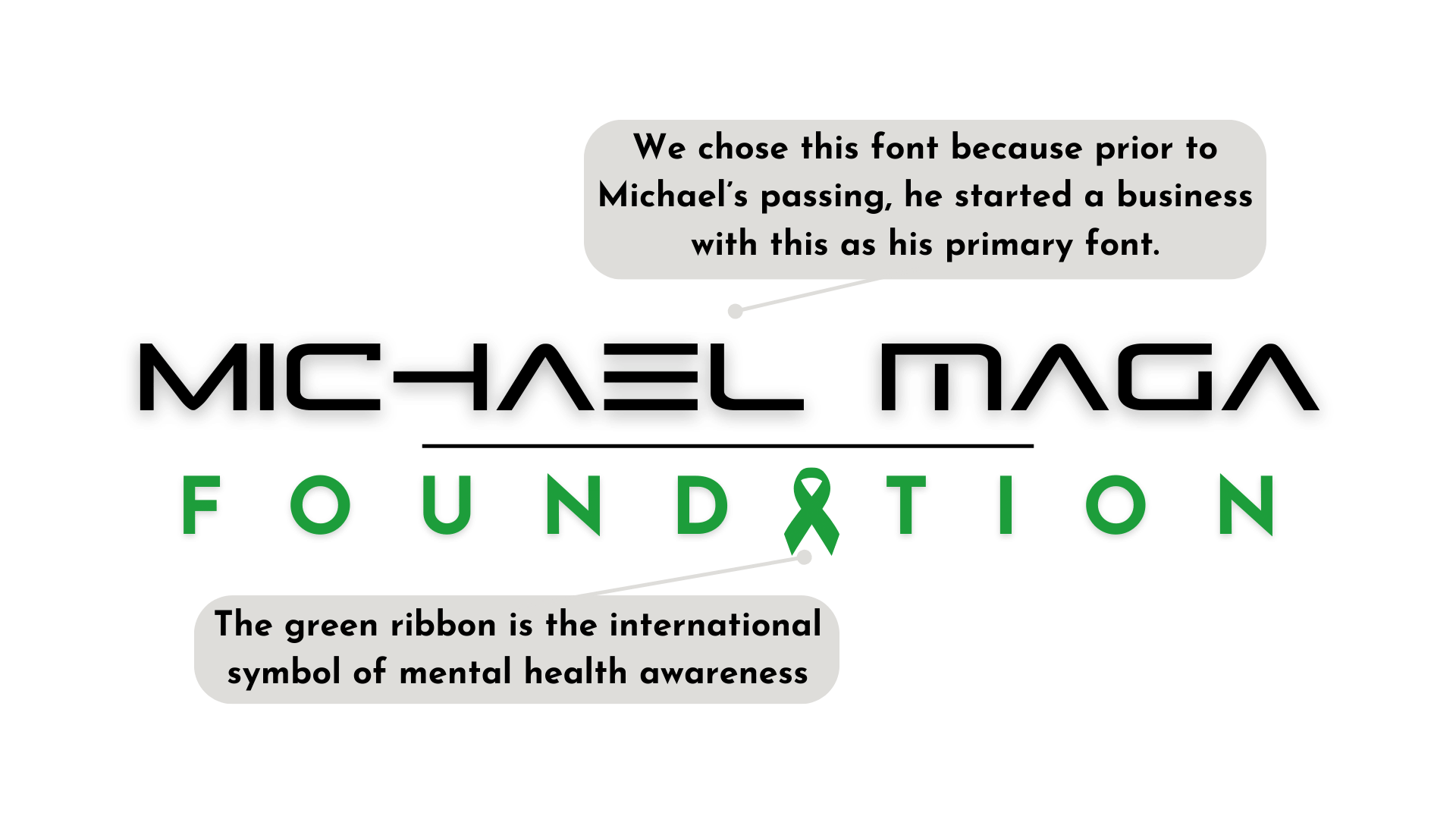The Michael Maga Foundation
From Struggle To Strength
Building a stronger, healthier community together
21 Million
Americans have at least one addiction
10%
Of addicts receive any treatment
9.5 Million
Americans also have a mental illness
25%
Who use drugs develop an addiction
In Loving Memory
Michael’s Story
At the age of 24, our son Michael, a senior at Michigan State University with less than 2 months to go to graduate, attended class on campus that finished at 7 pm. Michael was pursuing a degree in Human Resources with the ultimate goal of moving into Finance. Less than 4 hours later, Michael lost his life due to a series of events that were triggered by taking unprescribed amphetamine and benzodiazepines.
The Meaning
Behind The Logo
Our Cause
Who and Why We Help
Edward and Tina, along with Amanda and Jacob established the Michael Maga Foundation in 2021 to honor their son and brother. The goal of the foundation is to provide assistance and resources for young adults up to age 25 who are struggling with Substance Use Disorder.
Help Us Make A Change
Your generous support fuels our mission and makes a meaningful impact – every donation brings us one step closer to positive change.
Learn About Prevention
Frequently Asked Questions
-
Substance Use Disorder is a medical condition characterized by the harmful or hazardous use of substances, including alcohol and illicit drugs, leading to addiction and negative consequences.
-
Common signs include increased tolerance, withdrawal symptoms, loss of control, neglect of responsibilities, and continued use despite negative consequences.
-
Diagnosis often involves a comprehensive assessment by a healthcare professional, considering physical and mental health, substance use history, and the presence of specific criteria outlined in diagnostic manuals.
-
Treatment may involve a combination of therapies, counseling, medications, and support groups. It is often tailored to individual needs and the specific substances involved.
-
Offer support and encouragement, encourage seeking professional help, and educate yourself about addiction. Be non-judgmental and understanding while promoting healthy choices.








